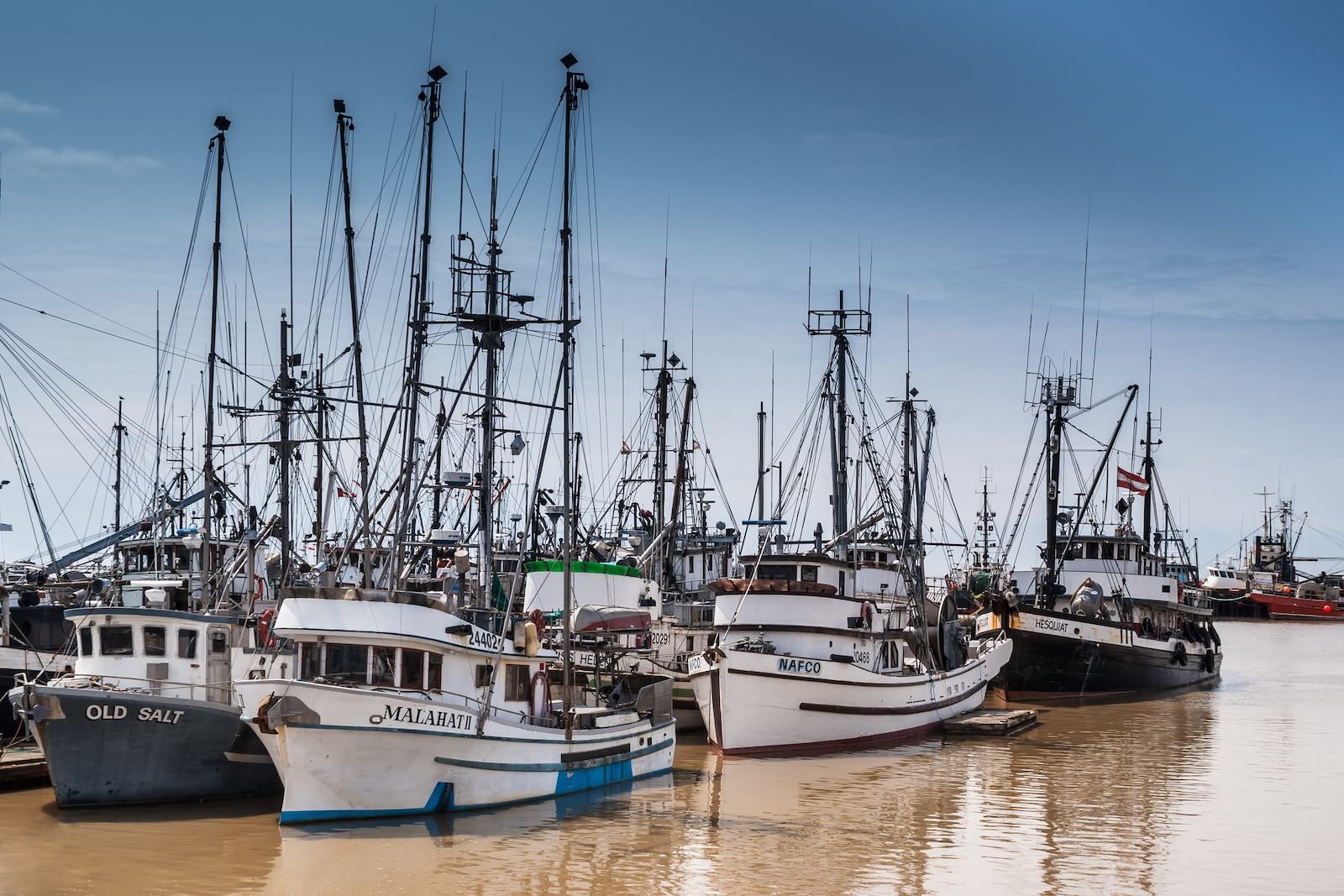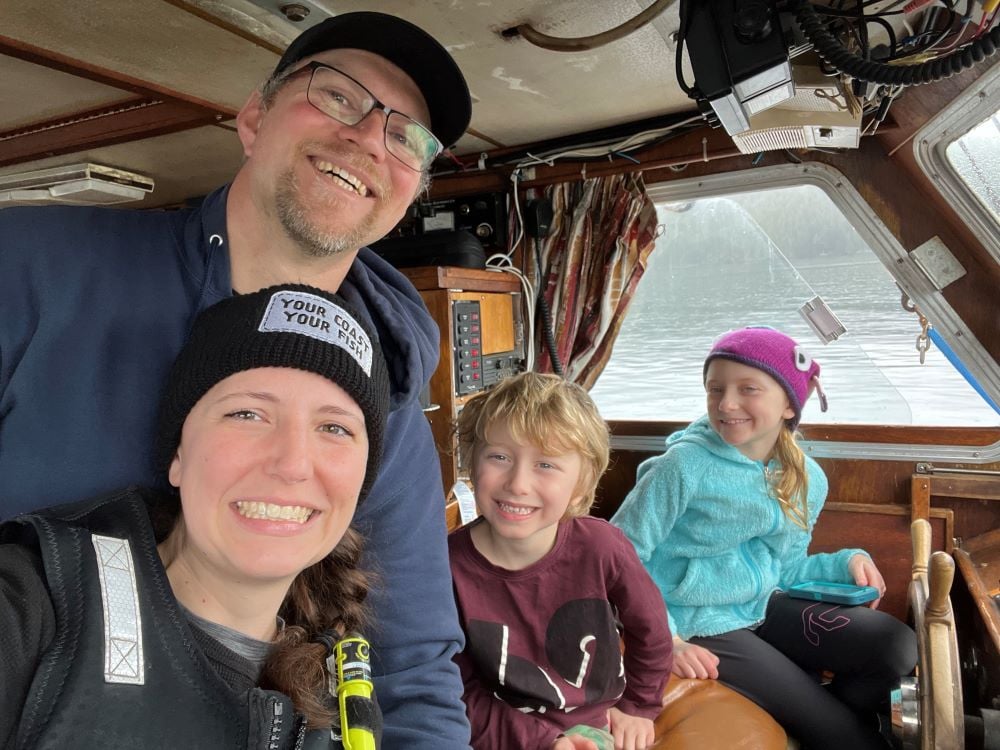Duncan Cameron is a fisherman, like his dad and his dad’s dad before him. They count themselves among the scores of families who have made their livings on the water, pulling riches from the deep.
But today, Cameron says young fishers like him are being priced out.
Cameron is part of a group of fishers, conservationists and politicians who say independent owner-operators like himself are increasingly competing with big money to get a finite number of government licenses and quota they need to fish.
Today, some of those licenses are worth hundreds of thousands or even more than a million dollars, something Cameron said has allowed major corporations to control a growing stake in a public resource.
“Unfortunately, the government hasn’t listened to us for many years, and the chicken is coming home to roost,” Cameron said.
It’s been four years since a parliamentary committee raised alarm about corporate concentration in the Pacific fishery.
That committee recommended the government consider restricting ownership to owner-operators and asked for a ban on selling licenses to foreign companies, neither of which has happened.
Guy Johnston, who has fished the coast for nearly five decades and is now the secretary-treasurer of the Union of Fishermen and Allied Workers, says the result is an industry — and a way of life — that is in decline.
“If we don’t have ownership of the fishing licenses within our communities, within First Nations, a lot of the benefits get stripped out, and they get shipped elsewhere,” Johnston said.
The blind spot
If you want to understand the crisis in fishing today, you need to understand what happened on a frigid January day in 1997, when Corky Evans and 400 angry fishermen in Alert Bay called for a federal minister’s head.
Evans, then the provincial minister in charge of fisheries, was stirring up a fight against sweeping changes to how the federal government managed fishing licenses.
In Canada, any commercial operator needs a license to fish for a specific species. They may also need to buy quota, which allows them to fish a determined amount of a specific fish in that year.
Historically, Evans said those licenses were passed down within families or held by First Nations or tribal authorities. But then the federal government introduced rules allowing owners to “stack” multiple licenses on the same boat.
Evans believed those changes would open the door to licenses becoming a financial asset — more like a stock in a company than a vested interest in a shared resource.
“The fishermen felt the same way. And I just got up one day, put some reporters on an airplane, flew them to Alert Bay and started a war,” Evans said.
Evans would spend months scrapping with his federal counterpart, who said the rule change was needed to stop overfishing in devastated salmon stocks. Evans, who retired from politics in 2009, was unsuccessful.
“I think public life is a great honour. I’m thrilled I was given the blessing that I was allowed to do it,” Evans said in a phone interview from his organic farm in the Kootenays. “But I came home with some regrets, and that’s right there at the top.”
Since then, the cost of license and quota has skyrocketed, even as the overall number of licenses has declined as government tries to save dwindling stocks of salmon and other fish.
The federal government does not have official figures, but in 2021, they estimated the cost of leasing halibut quota has grown by 250 per cent between 2007 and 2017 alone.
The cost of licenses for some other species in that time period declined. But overall, the trend is up; getting a license to fish may cost hundreds of thousands of dollars. That’s not just the case in salmon fisheries, which have well-documented problems with conservation and diminishing stocks, but in other fisheries where fish stocks are relatively healthy.
The result is that licenses have become prohibitively expensive. Andy Olson, the executive director of the Native Fishing Association, notes the federal government has spent tens of millions of dollars to help B.C. First Nations buy licenses and quota. But Olson said the buying power of those investments has shrunk as those assets become more expensive.
“Most of the time for Indigenous fishermen, purchasing a license and quota are out of their reach,” he said.
“The federal funding can’t keep up with the increase in the cost of the licenses, and that’s one of the challenges that the First Nations face.”
The result is that fewer and fewer fish harvesters actually hold licenses. In 1991, researcher Danielle Edwards found 90 per cent of B.C. halibut was caught by fishers who owned and ran their own boat. By 2016, that share had collapsed to just 15 per cent of the total catch, whereas investors and corporate interests owned 43 per cent of the halibut quota.
In some ways, that concentration of licenses is a direct result of government policy. In 2021, the DFO released a report that said there had been “a trend toward concentration of licenses and quota in many Pacific Region fisheries” over the past 25 years.
Johnston, and many other sources interviewed for this story, compared the rising cost of fishing licenses to the skyrocketing value of real estate in Metro Vancouver and other parts of British Columbia. Older people like him got into the market at a time licenses were affordable and thus own their own. But the younger fisherman are locked out, and are forced to lease a license from someone who has one.
Johnston said the owner of the quota — who he calls the “slipper skipper” — might take as much of 90 per cent of the profits.
“They have to pay fuel, they have to pay boat repairs, all these costs out of that tiny little slip that’s left,” Johnston said.
Melissa Collier, who fishes for scallops with her husband Joel, says she has seen firsthand how infrastructure needed to sustain the industry is disappearing as dockyards and fueling stations close up. Between 2018 and 2021 alone, the federal government said B.C.’s fish harvesting sector shed more than 500 jobs.
“More and more, you’re hearing stories of multigenerational fishing families where the next generation is unable to afford to get into the business,” Collier said.
Foreign ownership
Companies have argued the industry’s challenges are because of declining fish stocks, not corporate concentration.
Christina Burridge, the executive director for the BC Seafood Alliance, told a parliamentary committee in May that declining access to fish is the real challenge for the industry.

Phil Young, a vice-president for Canfisco, told The Tyee in an email that the problem was “excess capacity” — too many boats, and not enough fish.
The Department of Fisheries and Oceans has recently started buying back salmon licenses in an effort to help fish populations recover, something Young said his company was also considering.
Young said the company owned 30 per cent of the salmon seine, 12 per cent of the herring seine and 12 per cent of the herring gillnet licenses, as well as just over 20 per cent of all quota for groundfish.
He acknowledged the company buys about 37 per cent of salmon on the coast but said it did so by purchasing it from independent fishers.
“It seems that somehow all of the negative changes in the industry seem to be laid at the feet of my current company,” Young said.
But some academics say corporate concentration in B.C.’s fisheries is a growing and understudied problem.
In 2017, University of Guelph professor Jennifer Silver found just 38 companies held 26 per cent of all fishing licenses on B.C.’s coast through various portfolios and subsidiaries.
EcoTrust, a non-profit based on Vancouver Island, found in a 2017 access to information request that just 26 entities held more than 50 per cent of all the quota for halibut and sablefish.
But Silver said those figures could likely be an underestimate, since there’s nothing to stop a company from hiding its true level of ownership by way of numbered corporations, or through an associated individual who holds the license in name.
“I like to say that what my two papers show is just the tip of the iceberg,” Silver said.
Emily Orr, the president of UFAWU-Unifor and a longtime fisher, has called for new laws that would restrict license ownership to independent-owner operators, something the Atlantic coast has done for decades.
In the Atlantic region, foreign companies aren’t allowed to buy fish harvesting rights. Neither can companies who process fish, out of concern that such vertical integration would set the stage for a monopoly. And you can only hold a fishing license if you’re a “bob” — the industry slang for “boots on the boat.”
Rick Williams, a former deputy minister of Nova Scotia, says those policies came about in the 1980s, when provincial officials worried about an influx of capital into the fisheries.
“They had no friggin’ idea that those licenses that fishermen paid $25 a year for would be selling in 2015 for $1 million,” Williams said. The result today is that eastern fishers keep about 40 per cent of the value of their catch; on the West Coast, it’s more like 29 per cent.
Many fish harvesters have long called for the federal government to apply the same rules in the west. In 2019, the standing parliamentary committee on fisheries and oceans issued a report calling for a halt on selling quota and licenses to foreign companies. That same report called for new financial measures to support independent owner-operators, and a study on whether policies from the Atlantic could be applied to the Pacific.
But so far, none of that has happened.
Liberal MP Ken Hardie, who chairs that committee, acknowledged the department had not been as “responsive” on the matter as he had hoped.
“This is a strong example of the market being totally indifferent to human values,” said Hardie, who represents the Fleetwood-Port Kells riding in Surrey.
“When any industry is financialized, the material output, the production of goods and services runs secondary to the money you can make moving property around.”
Hardie is particularly concerned about the prospect of foreign companies buying licenses in the Pacific fishery.
In 2022, the Department of Oceans and Fisheries began a survey to evaluate the “beneficial ownership” of fishing licenses. The findings, released last September, found “very limited” prevalence of foreign license holders in the Pacific fishery, with only about two per cent of license holders reporting any form of foreign ownership.
But Orr questions the merits of that report. She says the survey identified license holders but does not necessarily identify the owners of those licenses, who may be different individuals or companies.
“The true percentage of foreign ownership of licenses and quotas remains unknown,” Orr wrote in a February 2024 email. “The central question in this discussion should be whether Canada allows for foreign ownership of its Common Property Resource harvest privileges at all, and if so, how much is acceptable? Without a policy in place to answer this, our fisheries are for sale without limit on the global market.”
Changing the status quo won’t be easy. It’s not clear, for example, how the federal government could dilute the share of the fisheries already held by corporations. But Lisa Marie Barron, another committee member and the NDP MP for Ladysmith-Nanaimo, said they could start with a ban on foreign ownership.
As a young girl, Barron said her parents moved from Newfoundland after a federal moratorium on cod fishing destroyed the province’s flagship industry. The moratorium was necessary to stop brutal overfishing, but devastated communities who relied on the sea to fill bellies and wallets.
“This doesn’t just impact local fishers and First Nations, it impacts the entire community. These communities that could be thriving if we kept those local resources local are instead seeing the benefits being pulled out of coastal communities,” Barron said.
For Hardie, it comes down to a simple question of who benefits from B.C.’s fish.
“The people at the tip of the pyramid are doing well, thank you very much,” Hardie said. “The people out on the water aren’t.” ![]()
Read more: Labour + Industry, Environment

















Tyee Commenting Guidelines
Comments that violate guidelines risk being deleted, and violations may result in a temporary or permanent user ban. Maintain the spirit of good conversation to stay in the discussion and be patient with moderators. Comments are reviewed regularly but not in real time.
Do:
Do not: